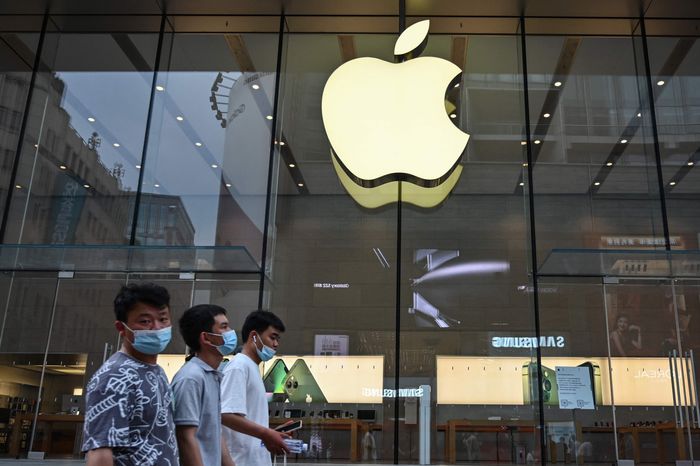Making Money With Penny Stocks
Whether you are trading or investing in penny stocks, we’ve got you covered. We outline everything you need to know about penny stocks and whether they are profitable investments.
Triston Martin
Sep 26, 2022
With dozens of different bond issues, Apple has established itself as one of the most significant bond issuers on the market. As of 2021, Apple's total term debt has increased to around $108 million due to these significant bond issuance and other short-term debt offers. Consequently, those who are interested in investing and are also fans of Apple have the option of purchasing either Apple stock or Apple bonds.
Every single investor has unique concerns and levels of comfort with risk. The bonds issued by Apple have less to offer than the company's stock. However, this also results in the stock experiencing significant volatility. Those who prioritise the well-being of their charge should not proceed in that direction since it is not a safe option. But what if you are not constrained by a method of investing that is considered conservative? If this is the case, purchasing Apple stock will probably give you a higher return than purchasing Apple bonds.
These bonds do not provide an incredibly enticing value based on their individual qualities. However, the difficulties that are due until 2025 are almost identical to the safety of any government bond. Apple has an enormous cash reserve and a shallow level of debt relative to its size. This is even though the total debt is around 108 million dollars at present.
It has sufficient cash flow to fulfil the interest payments it must make. At the same time, yield spreads on Apple bonds are pretty tight compared to those on equivalent U.S. Treasurys. This adds to the creditworthiness of the company. On the other hand, this also indicates that the bonds are susceptible to changes in the interest rate. That presents no difficulty for investors who want to keep the bonds until they mature.

Those who may need to sell the bonds before they mature are vulnerable to another risk: measures taken by the Federal Reserve or other causes might put pressure on the general bond market over the following ten years. The prolonged period of historically low-interest rates that prevailed after the global financial crisis of 2007–2008 will one day end. The interest rates will go up, which means that the yields on these bonds will go down.
Apple's bonds with maturities in 2046 and 2047 may be just as secure as their shorter-term issuance. However, the product assortment is being called into doubt. Apple's current goods may no longer be available in thirty years, much as the Sony Walkman is now. In this particular instance, though, Apple does not have a product lineup that is quite as specialised as Sony's was back when it was at the height of its power.
Suppose you want to invest in Apple's longer-term bonds. In that case, you need to be sure that the business will maintain its innovation tradition and continue providing items that customers want to buy. The fact that Apple has sufficient cash significantly improves the company's chances of surviving for the foreseeable future. This is quite likely to be the case even if, in the years to come, it will be considered technologically obsolete.
Let's go back to the beginning of the discussion: which is a better investment, Apple shares or Apple bonds? If an investor had purchased Apple's 10-year note in December 2018, they would have been eligible for a yield to maturity of 3.9%. On the other hand, the yield to maturity would have been 3.9%. Investors in stocks would have received a dividend yield of 1.7% for their holdings. The daily swings in prices affect each of these values.

This indicates that the ownership of the bonds would significantly increase the income earned by investors. In addition, this comparison does not consider the prospect of dividend increases in future years. There is a good chance that Apple will raise its dividend at some point in the future. Additionally, an investor who purchases Apple bonds does not participate in expanding the company's profits. Over the next five years, this might amount to anywhere between 10 and 15 per cent. Lastly, owing to the more liquid market, AAPL stock is more readily exchanged than the company's bonds.
The combination of these considerations suggests that while Apple bonds offer a slight edge in terms of yield, purchasing AAPL stock is the superior choice in terms of potential total return over the long run. Investing in stocks allows investors to take part in the expansion of a company's profits and also offers the possibility of growing dividends. To help hedge against inflation, the stock is the superior investment.
Making Money With Penny Stocks
Whether you are trading or investing in penny stocks, we’ve got you covered. We outline everything you need to know about penny stocks and whether they are profitable investments.
An Overview Of TruStage Life Insurance
Life insurance is an important financial tool that can help protect your loved ones in the event of your unexpected death. It provides financial security and peace of mind, knowing that your family will be taken care of if something happens to you. With so many options available, it can take time to determine which life insurance provider is right for you. One option worth considering is TruStage Life Insurance, a provider that offers coverage to credit union members
Compare in Detail: Top Line vs. Bottom Line on an Income Statement
Revenues or gross sales make up a company's "top line." Therefore, an increase in gross sales or revenues constitutes "top-line growth" for a corporation. Net profit, or the "bottom" line, is the most important indicator of a company's financial health. The bottom line is the remaining profit after deducting all operating costs from total sales.
Stocks That Are Giving Investors Big Buybacks
Considering that by the end of 2021, the market capitalization on the New York Stock Exchange had reached $27 trillion, the amount repurchased represented over 4% of all outstanding shares. The significance of buybacks is not attributable to the total number of shares repurchased in a single year but rather to the fact that they continue to be repurchased year after year, reducing the number of outstanding shares and fostering EPS growth
Privacy Policy | Terms of Use
Copyright © 2021.All rights Reserved.
Contact us at : [email protected]



